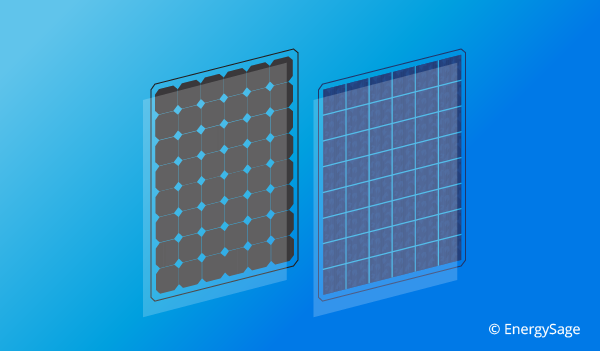Solar panel systems aren’t just for houses or commercial properties – they can be a great resource for on the go electricity users as well. In this article, learn about how solar panels for RVs and campers work, if they’re right for you, and what some of the top options available are.
Continue readingCategory Archives: Solar 101
Ground-mounted solar panels: top 3 things you need to know
When homeowners think of installing a solar energy system on their home, rooftop solar is probably the first thing to come to mind. What many homeowners don’t realize is that installing ground mount solar panels is just as easy and cost-effective.
Continue readingWhat is an off grid solar system? What does it mean to go “off the grid” with solar?
People say all the time that they want to get off the grid. Beyond just meaning getting away from it all for a while, getting off the grid has a specific technical meaning with regards to your relationship to your utility and how you get your power. So, what exactly does it mean to go off the grid? If you’re going off-grid, there are tons of options to consider when it comes to batteries, inverters, panels, mounting systems, and solar charge controllers. Each product is different and you can customize your kit in a countless number of ways, which is why it is vital to know exactly what you’re looking for and why. Generally, an off grid solar system has the following parts:
- Solar panels
- Solar inverters
- Wiring/cables
- Mounting equipment
- Charge controller
- Batteries
- Safety equipment (safety disconnects, grounding equipment, surge protection)
Solar farms: what you need to know
The solar industry has seen rapid growth over the past decade, and a major contributing factor has been the surge in solar farms popping up across the globe. In this article, we’ll explain the different types of solar farms, how much they cost and how to start one.
Continue reading11 facts about solar energy that you didn’t know before
The U.S. solar industry has witnessed remarkable growth in the past decade while the cost of solar has declined by nearly 70 percent. Prices reached an all time low in Q4 of 2020 across all segments of the industry, meaning solar energy has never been more affordable and accessible. Now that solar has entered the mainstream, everyday homeowners are starting to wonder how much solar could save them and how simple making the switch really could be. If you’re starting to think about installing solar panels, it’s helpful to understand the big picture for solar power. In this article, we’ll break down ten solar energy facts that shed some light on key parts of the industry.
Continue readingDIY solar panels: can you install solar panels yourself?
Going solar has major financial benefits: it reduces your monthly electricity costs and can even increase the value of your home. Incentives like the federal tax credit for solar can reduce your net cost by 26 percent, but solar is still a big investment, and the price tag can result in sticker shock. To save money, it’s no surprise that many homeowners are considering DIY and asking themselves “can you install solar panels yourself?” Simply put, yes you can—but, there are some advantages and disadvantages of doing it alone. For instance, it may not be the best route to take if you still need to rely on some utility energy, and installation can be very complicated without professional experience. In this article, we’ll break down the top pros and cons that you need to know about do-it-yourself solar panel systems before making a decision.
Continue reading
Monocrystalline and polycrystalline solar panels: what you need to know
When you evaluate solar panels for your photovoltaic (PV) system, you will encounter two main categories of panel options: monocrystalline solar panels (mono) and polycrystalline solar panels (poly). Both types of panels produce energy from the sun, but there are some key differences to be aware of.
Continue readingHow long do solar panels last? Solar panel lifespan explained
The industry standard for a solar panel’s productive lifetime is 25-30 years. However, a solar panel won’t die after 25-30 years, rather, their output will decrease a significant amount below what the manufacturer projected. It’s hard to understand the upfront cost of going solar without knowing how long you can expect your rooftop panels to produce ample energy. Your solar panels will be able to offset your electricity use for decades, but it is also important to understand industry projections and degradation rates.
Continue readingHow much do solar panels save?
Solar panels aren’t just good for the environment – you can benefit from serious savings over the lifetime of your solar panel system.
Continue readingPowering through: 2020 NREL study reveals the true longevity of solar
One of the most common statements you’ll hear us say about solar is that it’s a great investment. Among many reasons, we say this because solar panels last a long time. Most solar panel manufacturers now offer warranties between 20 and 25 years, with some going even longer. The average payback period in the US is around eight years, meaning you’ll save substantial amounts of money for well over half of your system’s lifetime.
But warrantied production is one thing and actual performance is another altogether. So, how well do panels actually perform as they age? A 2020 study by the National Renewable Energy Laboratory (NREL), PV field reliability status—Analysis of 100 000 solar systems, provides some compelling insights.
Continue reading




